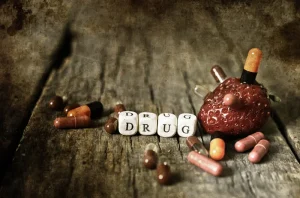The Angry Drunk: How Alcohol and Aggression Are Linked
- Home
- The Angry Drunk: How Alcohol and Aggression Are Linked







The journal Experimental and Clinical Psychopharmacology reports on studies showing that alcohol can increase aggression in both men and women, but more so in men. Alcohol impairs a person’s executive functioning, making it harder for them to think clearly and make rational decisions. Impulse control is affected, and individuals under the influence of alcohol may have a shorter fuse than they otherwise would. This is not to say that alcohol causes aggression, or serves to makes someone angry, in and of itself; however, it may be a contributing factor when it comes to difficulties controlling these emotions. In addition, alcohol abuse and addiction can result in poor anger management skills.


They feel as if they can do no wrong, and it is everybody else who is at fault. Having someone close to you, whether it is a friend, a romantic partner, a family member, or even a parent who struggles with addiction, is challenging. Impulsivity and rage with alcohol may also be a result of genetics. Some people have a genetic variation of the serotonin 2B receptor gene HTR2B. Alcohol’s ability to temporarily reduce anxiety can also intensify the urge to act on impulse.

BetterHelp offers affordable mental health care via phone, video, or live-chat. Emotionally, a person dealing with PAWS may have mood swings and become depressed, making them tough to https://ecosoberhouse.com/ be around—maybe even as unpleasant as they might have been when they were drinking. Alcohol used to provide temporary relief from such feelings, but you can’t rely on that anymore.
It’s essential to commit to a sobriety plan and alcohol abuse intervention to help prevent relapse and manage anger effectively. Factors like underlying personality traits, neurochemical makeup, and even the presence of disorders like antisocial personality disorder (ASPD) can influence alcohol-related aggression. Now that we know what alcoholic rage syndrome is, can we do anything about it? In other words, can we make our inner “Tammy” or “Jimmy” (or whatever name your boozy alter-ego might have) stay away for good? The ultimate goal is to help them get into a treatment program that addresses their substance abuse and the way it causes them to behave. But this is often easier said than done, and mean drunks can turn violent when provoked — meaning that if you share a living space with one, your safety should be your main priority.
Many people enjoy alcoholic drinks as a way of relaxing, sometimes to reduce the tension of socializing or to quiet an overactive mind. By contrast, some individuals’ alcohol consumption contributes to their anger, hostility, and even aggression. In his case, he was already predisposed to anger arousal before he had his first drink. In addition, people with IED are at an increased risk for self-harm (self-injury) and suicide. Because of this, it’s essential to seek medical help as soon as possible if you feel you or a family member has intermittent explosive disorder. The main sign of intermittent explosive disorder is a pattern of outbursts of anger that are out of proportion to the situation or event that caused them.
Alcohol can provoke different emotional responses for different people. If you have a natural tendency to be angry, drinking alcohol may cause you to become aggressive. Taking these steps to address both alcoholic rage syndrome alcoholism and anger management will contribute significantly to your recovery and overall well-being. Selecting the best care involves considering your personal needs, circumstances, and preferences.
